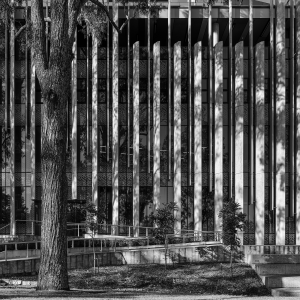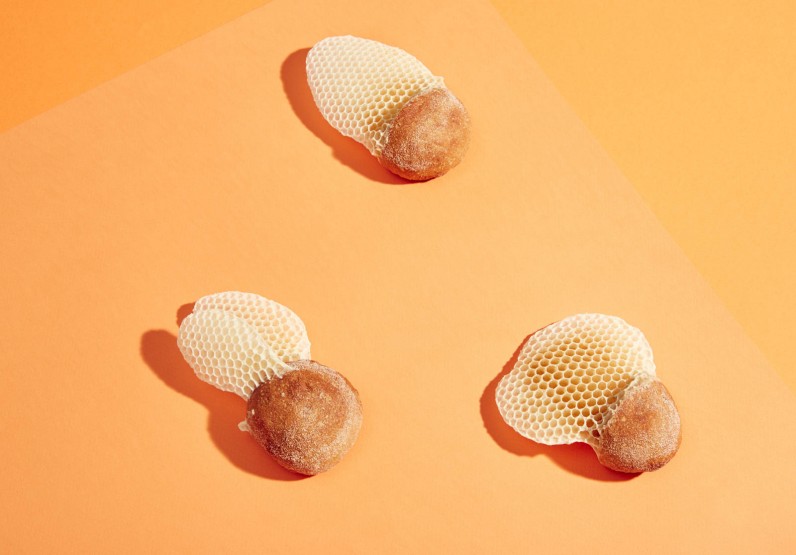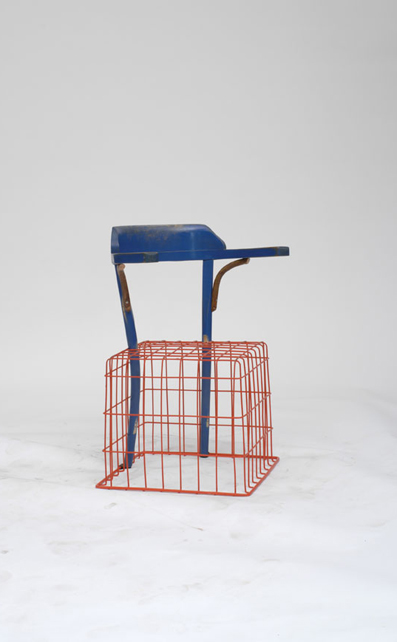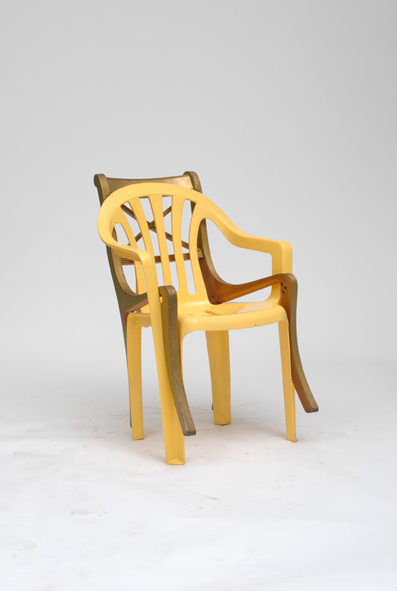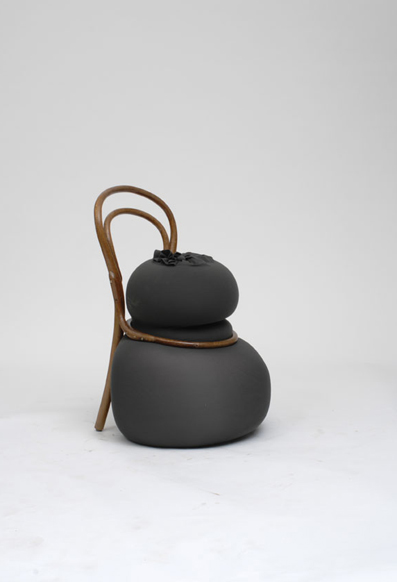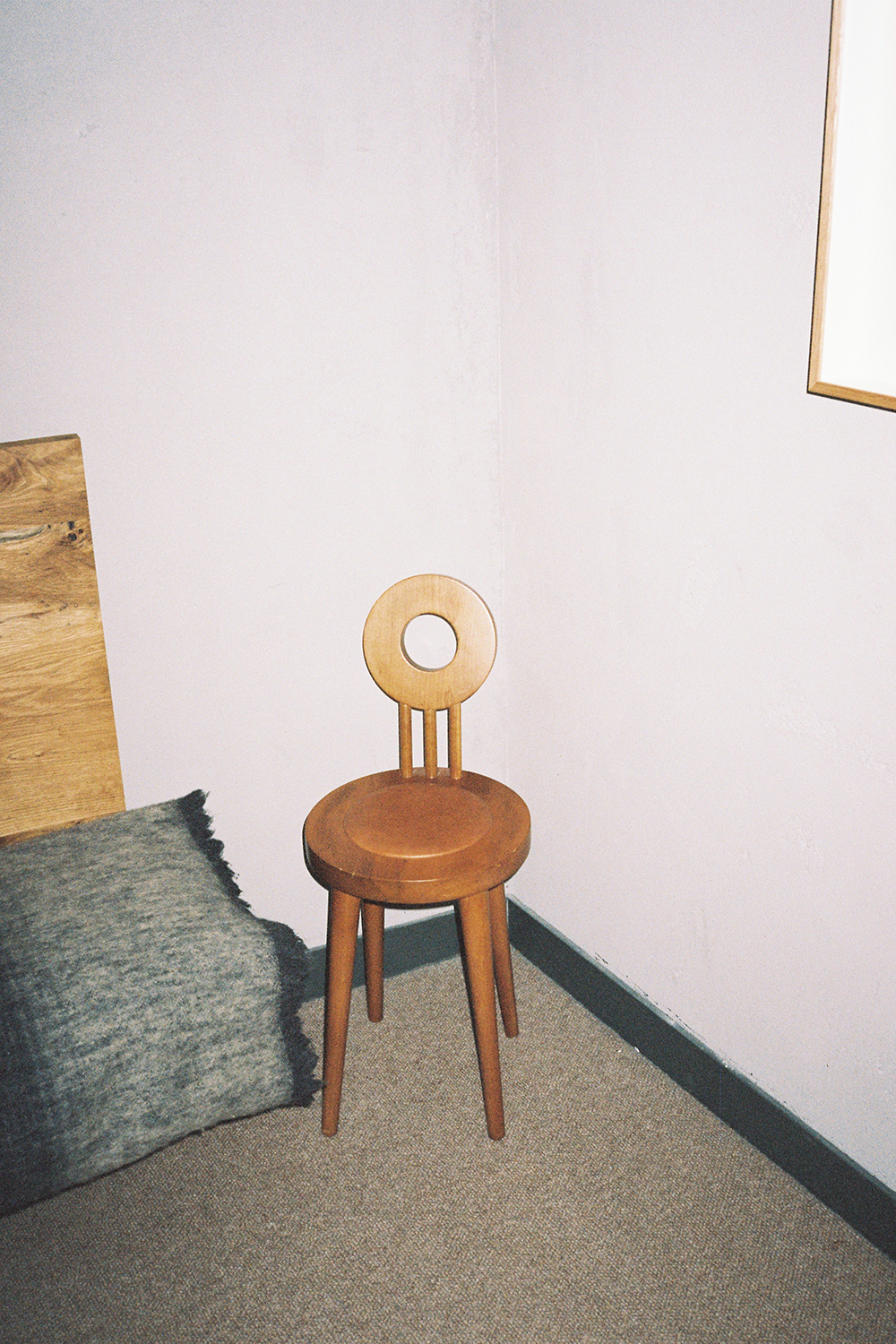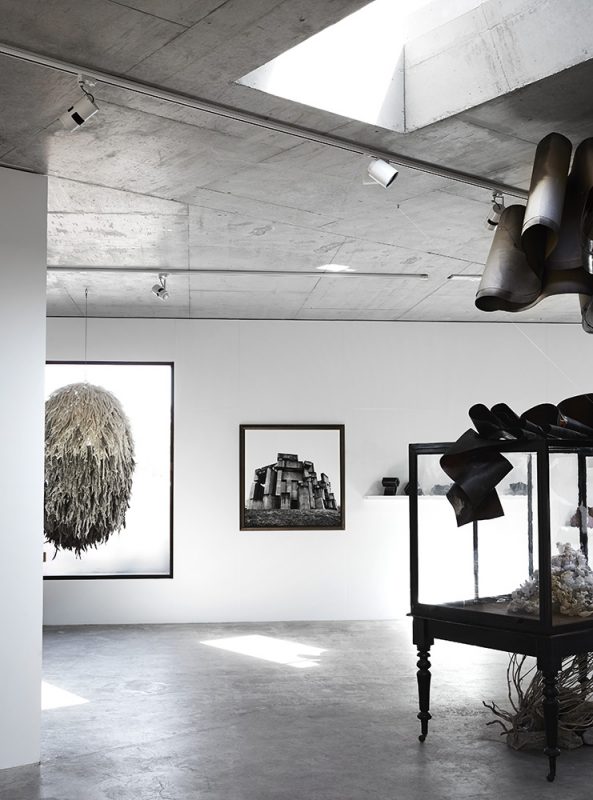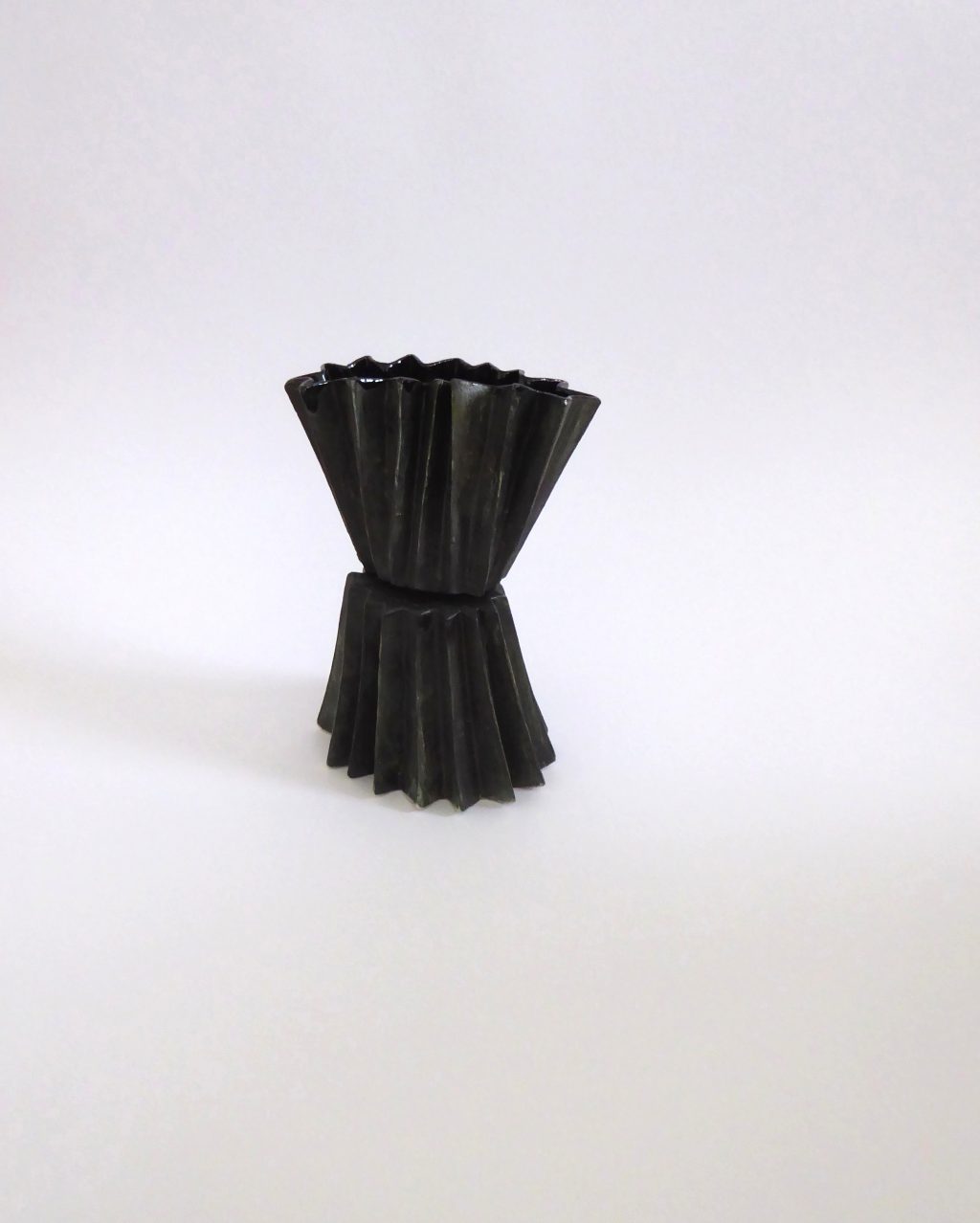
'Stuck on you' made by Kirsten Perry.
Written by Dr Anika Ramholdt for the exhibition ‘Not Wow’ – new works by Kirsten Perry shown at Mr Kitly gallery (Melbourne) in October 2016.
Perry’s ceramics works, presented by Mr Kitly, are coming to Canberra to stay a while in the Cabinets on the ground floor. They’ll be on show from Saturday 11 March until Sunday 30 April.
There’s a lot of noise out there. Amidst the relentless wellness dogma and never-ending dog memes (although they’re pretty awesome), there’s very little space for personal reverie. That’s why it’s so refreshing to encounter objects and spaces (perhaps even people if we’re lucky), which we can experience intuitively rather than intelligibly. Things, which via their modesty, creep up on us slowly and affect us profoundly.
The Japanese aesthetic of wabi-sabi is pertinent to this idea. Often defined simplistically as a ‘nature based aesthetic paradigm’ [1] that celebrates the imperfect, accidental and modest, wabi-sabi is a complex and arguably indefinable nexus of spiritualism and the material world.
In his writing on wabi-sabi, Leonard Koren attempts to elucidate the characteristics of the aesthetic as private, idiosyncratic, intuitive, variable, natural, crude, ambiguous, impermanent and warm. The wabi-sabi universe, according to Koren, is where ‘things are either devolving toward, or evolving from, nothingness’[2]. Its objects and spaces are simultaneously crude and ancient, becoming and decaying. In this realm ‘beauty can be coaxed out of ugliness’ [3] and there is an obvious reverence for materiality, transience and impermanence.
Wabi-sabi is an aesthetic that can be all too easily ascribed to what Koren describes as ‘ostentatious austerity.’[4] Just because something has the hashtag of #authentic, #rustic or #totesnatural doesn’t mean that it innately typifies the cyclical nature of being and nothingness. We’re not all elevated to a state of spiritual ascension by a roughly whittled spoon, although we might be. Just because you’ve attached the doorknob poorly doesn’t make you a master of Zen balance. Entirely subjective, a wabi-sabi expression for one may be dismissed as insipidly quirky or just plain lazy by another. The essence of wabi-sabi, as I’ve come to understand it, lies in the invocation of transience, the reminder that nothing is permanent and therefore perfection is an impossible ideal.
We live in the wow. Floating in this soup of the over-cooked it’s sometimes nice to swim with the onions, to find something humble, to stumble upon a reliable pulse. Sipping at an ok but not particular wow green smoothie, it occurs to me that it’s hard out there for a Désirée potato; things aren’t what they used to be for white foods. In the ever-changing whirlwind of values and ideals it seems important to make one’s own shrine (metaphorically or otherwise) to that we she finds holy. Inside our private niche we pin and prop the objects, memories, values and experiences that pave the way to our unique ascension. Where personal reverie may eclipse for a moment the onslaught of dogma and dog memes and we can light a candle for poor Désirée, if that’s how we roll.
1 Koren, Leonard, ‘Wabi-Sabi for artists, Designers, Poets and Philosophers’ (Berkley, California: Stone Bridge Press, 1994), 9.
2 Koren, 40.
3 Koren, 51.
4 Koren, 72.
